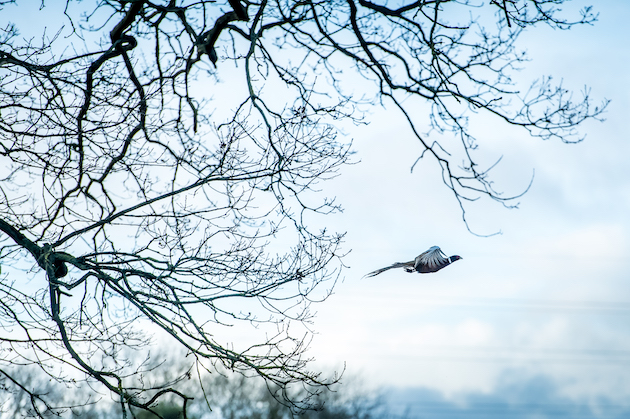RSPB launches fresh attack on gamebird releasing
Despite an almost total lack of evidence, the RSPB have claimed that gamebird releasing is unsustainable and must be more heavily regulated.

Flying pheasant
The charity announced its change of policy at its annual general meeting. Jeff Knott, the RSPB’s director of policy and advocacy, told Shooting Times: “Over the past two years we have sought improved environmental standards and better compliance with existing rules and regulations. Unfortunately, we have seen little progress and no evidence pointing to substantial change. In the context of a nature and climate emergency, the current largely voluntary framework has failed to deliver the necessary changes.
“We now believe only further regulation and better enforcement of existing rules will deliver the changes needed to create a more sustainable gamebird shooting industry.”
Reviews of gamebird releasing conducted by experts from the GWCT and the University of Exeter found that negative impacts from released birds were slight and were concentrated around release sites, while the positives spread over a much larger area.
Shooting and gamekeeping organisations were notified in advance of the RSPB’s announcement in a letter from Chief Executive Becky Speight. In her letter, she claimed: “Our concern is about large-scale shoots, and not small-scale farm shoots, where there is often a net benefit for native wildlife.”
BASC, the NGO and the GWCT all wrote back to reject the RSPB’s claim. Writing on behalf of the GWCT, Dame Theresa Dent said: “We are also surprised that you have an issue with large-scale, but not small-scale shoots. The science shows that size of shoot is not a critical factor in terms of biodiversity delivery. All shoots, large or small, can deliver significant biodiversity gains when they follow best practice guidelines.”
The National Gamekeepers’ Organisation said that the RSPB’s position “only serves to show that the organisation is more interested in pursuing their campaign against game shooting, than in conserving and improving the prospect of the UK’s bird life.”








